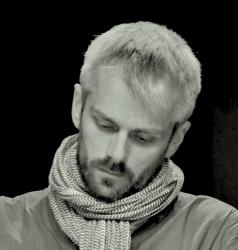There’s a short film programme in town. It’s a good idea: Couch fest films is an initiative that lines up with film festivals around the world in order to screen a selection of recent short films in people’s ‘cosy residential venues.’ That’s your home. They—you—still charge for the screening, just a little, because ‘if the festival were free it would make hosts nervous that anyone and everyone could just walk right into their house—people who were maybe just bored and had no real understanding of the love of film, community or the idea behind the festival.’ So it’s a niche thing. A connoisseur thing. Sort of.
Now, Reykjavík saw nine programmes to choose from, in resi- dencies reaching westward from Bíó Paradís: Animation 1, 2, 3, Comedy, Ex- perimental, the ‘Inappropriately Awe- some’ and three mixed programmes. To be fair, the screeners I received seem not to have included the experimental programme. And some of the material included on the DVD-ROMs refused to play on my n year old laptop due to the .mov files’ amazingly high resolution (all hail the EOS 5D mark II). Among the films I could watch was a surprising and neatly executed Dutch comedy, called ‘Sugar.’ Then there is the wonderful poetry-animation called ‘Animal Beatbox,’ reminiscent of Eiríkur Örn Norðdahl’s ‘Kreppusonnettan.’ ‘Tongueling,’ ‘Plato’ and others also seemed to suggest that independent animators are using their medium for exploration. Having noted these I am sorry to say: yaaaawn …
Judging from Couch fest film’s selection this year, what brings people to make short films would seem to be:
- to tell a joke
- to catch the attention of producers or moviegoers in the hope of extending the short into a feature.
There’s a cute little joke about American café-culture that could really do wonders as an advertising campaign. There’s animated combat scenes looking just like something else you’ve seen quite often. Any attempted explorations of human existence tend to be limited by an essentialism, where people’s inner lives seem defined by their official, external roles in the mind of youngsters: a person who holds advertising signs on busy streets for a living reflects on herself as a sign-holder; a person who has become old acts, behaves and feels only within the limits of what a young person finds sympathetic about ‘old people.’ Such caricatures are just as numbing as the stereotyping of race or gender. It’s not a question of political correctness but, shall we say, ’emotional intelligence?’ I have been moved more by commercials for car insurance and washing powder.
Rule 1: if the scene could sell washing powder, don’t shoot.
There is an abundance of problems involved in human existence, an abundance of joys and an abundance of potential sensory data—none of which is explored in these films. It remains a riddle, when the rest of human endeavours, not least artistic ones, struggle with ideas, situations, history and nonsense, how cinema, with its unique capabilities of portraying what it means to exist as a human life-form within this world of ideas, situations, history and nonsense, can so often be so thoughtless. So stupid. To take but one example—I do believe this is one of the big challenges of contemporary cinema, and it is not a rhetorical question but cause for some reflection: why is it that in all the films I watched, the only female main characters were
- the generic ‘old woman’
- a teenage vampire?
Really, why? You don’t need to declare yourself a feminist to find something very peculiar about cinema’s reluctance to subjectivise individual female characters. This is but one strikingly obvious example of the vast scope of potential struggles evidently not being fought within the short film.
The level of technical know-how and stylistic ambition is generally very high in most of these films, but spirits are low. Most of the material shows and tells us less than a successful internet meme. Cinema is not philosophy, it is not painting, it is not theatre and it is not writing—it is something else altogether, and it’s best when it takes itself seriously as such. Godard said he made films to create friction, so philosophers like his contemporary Foucault would speak a little slower, proclaim a little less. Then again, he said a lot of things. There are many things to do with a film, all in all this programme does rather little of it. Cinema—especially new, young, ‘fresh’ cinema—must start conversing with the humanities and the arts again. Meanwhile, we’ll be sharing more challenging things on YouTube.
Buy subscriptions, t-shirts and more from our shop right here!


















